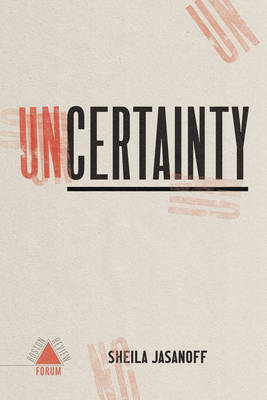
- Retrait gratuit dans votre magasin Club
- 7.000.000 titres dans notre catalogue
- Payer en toute sécurité
- Toujours un magasin près de chez vous
- Retrait gratuit dans votre magasin Club
- 7.000.0000 titres dans notre catalogue
- Payer en toute sécurité
- Toujours un magasin près de chez vous
Description
Nearly two years into a global pandemic, uncertainty has profoundly unsettled both our personal and political lives. Some of its sources are epistemic: How long will vaccine immunity last? Do rising prices threaten economic recovery? Others are sharply existential: How will I pay rent next month? Will I see my loved one again? At no other moment in the twenty-first century has there been such widespread unease about what the future holds.
Uncertainty is perhaps never more consequential than where it intersects with political power. Leading this issue's forum, Sheila Jasanoff, pioneering scholar of science and technology studies, argues that public policy could benefit from a much more serious acknowledgment of uncertainty. In place of the hubris of technocratic expertise, Jasanoff calls for "technologies of humility"--institutional mechanisms, including greater citizen participation, for incorporating a wider range of experience and views in our schemes of democratic governance. Respondents to Jasanoff consider other causes of pandemic mismanagement and ask whether humility is the best response.
Spécifications
Parties prenantes
- Auteur(s) :
- Editeur:
Contenu
- Nombre de pages :
- 160
- Langue:
- Anglais
- Collection :
Caractéristiques
- EAN:
- 9781946511669
- Date de parution :
- 18-01-22
- Format:
- Livre broché
- Format numérique:
- Trade paperback (VS)
- Dimensions :
- 150 mm x 226 mm
- Poids :
- 272 g

Les avis
Nous publions uniquement les avis qui respectent les conditions requises. Consultez nos conditions pour les avis.






